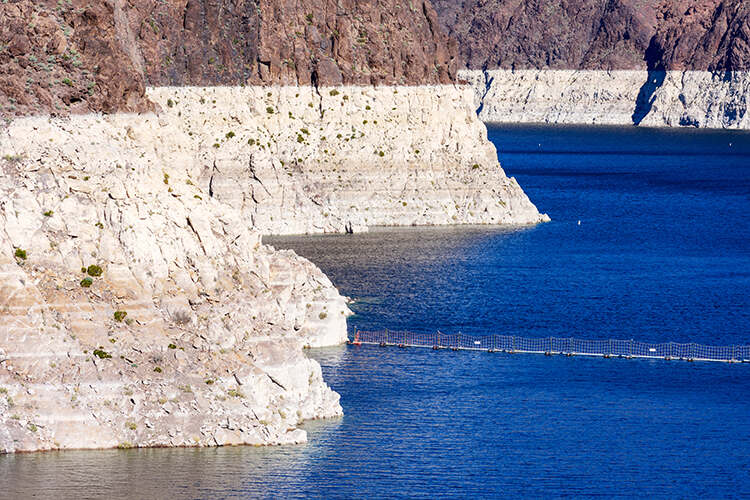
Environmental author Tim Smedley selects from his library some of his favourite and formative reads. Tims’s new book, The Last Drop: Solving the World’s Water Crisis, is out 15 June
• Cadillac Desert
by Marc Reisner (1986)
The definitive telling of water engineering in the American West, and what went wrong. Still packs an eye-watering punch almost 40 years on.
• The Water Kingdom
by Philip Ball (2016)
I’m in awe of Ball’s ability to be a scientist, travel writer, historian, and – to top it off – speaker of Chinese. A masterful account.
• English Pastoral
by James Rebanks (2020)
The chance to see English farming through the eyes of four generations who’ve worked the same fields is revelatory. Rebanks helps the scales fall from our eyes.

• Wilding
by Isabella Tree (2018)
The book I’m currently reading and can’t put down. A thorough analysis of a paradise lost and how it can be regained through nature-friendly farm management. The Wild Isles Attenborough series would have had very little to film without Knepp’s conservation efforts.
• Empireland
by Sathnam Sanghera (2021)
Environmental books often miss the way in which educational and institutional bias, combined with colonial racism, contributed to today’s climate injustices. Sanghera puts this firmly into context.
• London: The Biography
by Peter Ackroyd (2000)
Ackroyd’s 800-page biography of the city remains an astounding achievement. It also cleverly, evocatively gives the reader a sense of how both people and urban infrastructure adapt to disasters and changing climate.
• The Private Lives of the Impressionists
by Sue Roe (2006)
This is my curveball in an otherwise climate-centric list. Roe’s account of late-19th-century Paris and the internal struggles of the Impressionists remains one of the most evocative books I’ve read.
• Wild and Crazy Guys
by Nick de Semlyen (2019)
Okay, one more curveball. For fans of 1980s comedy, and the heyday of Steve Allen, Chevy Chase et al, this book is an absolute riot (and contains several).
Read our review of The Last Drop: Solving the World’s Water Crisis by Tim Smedley




